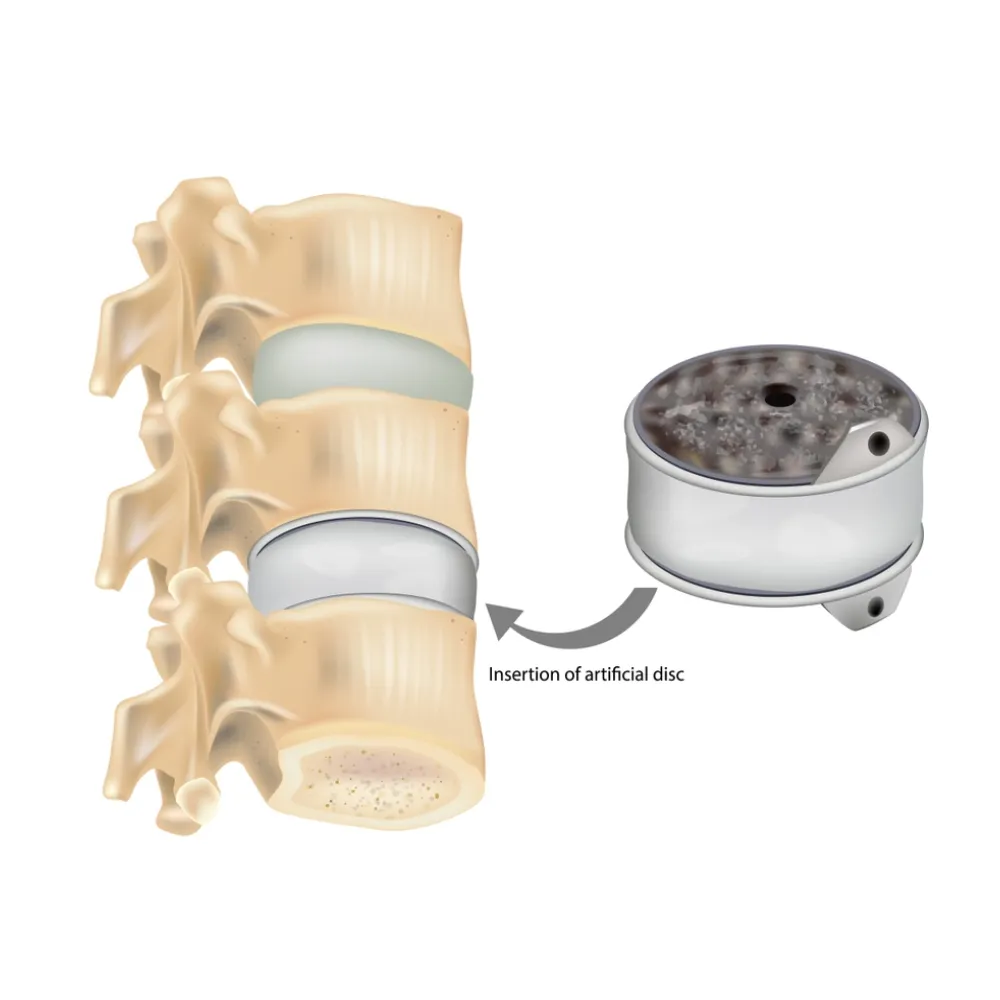Living with chronic back pain can be debilitating and life-altering. It can limit your mobility, affect your quality of life, and hinder your ability to perform everyday tasks. Thankfully, advances in medical technology have provided innovative solutions to address this issue. One such solution is artificial discs in spine surgery. In this blog, we’ll explore what artificial discs in spine surgery are and the numerous benefits they offer to those seeking a path to pain-free living.
What Are Artificial Discs In Spine Surgery?
Artificial discs, also known as artificial intervertebral discs or spinal implants, are medical devices designed to replace damaged or degenerated discs in the spine. The spinal discs, which act as shock absorbers between vertebrae, can wear down or become damaged due to age, injury, or various medical conditions. This wear and tear can lead to chronic back pain and a decrease in overall spine function.
Artificial discs are typically made from biocompatible materials, such as metal, plastic, or a combination of both, to mimic the natural function of the spinal discs. They are surgically implanted between two adjacent vertebrae, restoring stability, flexibility, and overall spinal health.
Benefits of Artificial Discs in Spine Surgery
1. Pain Relief: The most significant advantage of artificial discs is pain relief. Chronic back pain caused by damaged or degenerated discs can be effectively relieved with these devices. By restoring proper spacing and cushioning between vertebrae, artificial discs reduce pressure on nerves and relieve pain, allowing patients to regain their quality of life.
2. Improved Mobility: Artificial discs preserve and sometimes even enhance spinal mobility. Unlike traditional fusion surgery, which restricts movement in the affected area, artificial discs enable natural motion between the vertebrae. This is crucial for maintaining flexibility and preventing adjacent disc degeneration, which can occur after fusion surgery.
3. Faster Recovery: Recovery time after artificial disc replacement surgery is often shorter compared to traditional spinal fusion procedures. Patients can return to their daily activities and work sooner, as there is no need for the fusion to solidify over time. This faster recovery is a substantial benefit for those who want to get back to their active lives as quickly as possible.
4. Reduced Risk of Adjacent Segment Degeneration: Artificial discs help prevent adjacent segment degeneration, a common issue with spinal fusion surgery. Fusion can put additional stress on nearby discs, leading to their premature wear and tear. Artificial discs maintain natural spinal movement, reducing the risk of this complication and potentially eliminating the need for future surgeries.
5. Minimized Complications: While all surgeries come with some degree of risk, endoscopic disc replacement surgery generally carries fewer complications than traditional fusion procedures. This is because there is no need for bone grafts or hardware to fuse the vertebrae together, reducing the risk of infection and hardware-related issues.
6. Long-Term Success: While all surgeries come with some degree of risk, endoscopic disc replacement surgery generally carries fewer complications than traditional fusion procedures. This is because there is no need for bone grafts or hardware to fuse the vertebrae together, reducing the risk of infection and hardware-related issues.
7. Preserved Spinal Structure: Unlike fusion, which alters the natural curvature of the spine, artificial discs maintain the spine’s anatomical structure. This preservation is crucial for overall spinal health and helps patients maintain proper posture and alignment.
Conclusion:
Artificial discs in spine surgery represent a remarkable advancement in the field of orthopaedics. They offer a multitude of benefits to individuals suffering from chronic back pain due to damaged or degenerated discs. By providing pain relief, improved mobility, faster recovery, and a reduced risk of complications, artificial discs pave the way for a path to pain-free living. If you are experiencing chronic back pain and are considering your treatment options, consulting with a neuro and spine specialist to explore the potential benefits of artificial disc replacement could be your ticket to a brighter, pain-free future.

